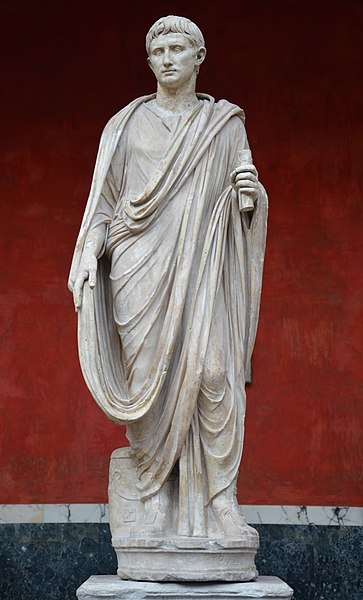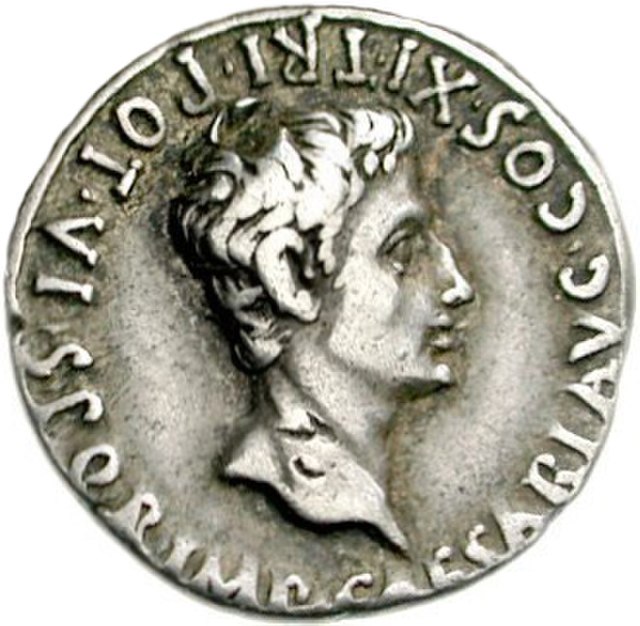Gaius Caesar Augustus Germanicus, better known by his nickname Caligula, was Roman emperor from AD 37 until his assassination in AD 41. He was the son of the Roman general Germanicus and Augustus' granddaughter Agrippina the Elder, members of the first ruling family of the Roman Empire. He was born two years before Tiberius was made emperor. Gaius accompanied his father, mother and siblings on campaign in Germania, at little more than four or five years old. He had been named after Gaius Julius Caesar, but his father's soldiers affectionately nicknamed him "Caligula".
Marble bust, 37–41 AD
A Roman caliga, after which the name Caligula derived. This piece was excavated near Xanten, where Caligula was stationed with his parents during military campaigns in Germania
Reconstruction drawing of the Villa Jovis on Capri, where Caligula grew up at the court of Tiberius
Caligula Depositing the Ashes of his Mother and Brother in the Tomb of his Ancestors, by Eustache Le Sueur, 1647.
The Roman emperor was the ruler and monarchical head of state of the Roman Empire, starting with the granting of the title augustus to Octavian in 27 BC. The term "emperor" is a modern convention, and did not exist as such during the Empire. Often when a given Roman is described as becoming emperor in English, it reflects his taking of the title augustus and later basileus. Another title used was imperator, originally a military honorific, and caesar, originally a surname. Early emperors also used the title princeps alongside other Republican titles, notably consul and pontifex maximus.
Bust of Augustus wearing the corona civica
Augustus depicted as a magistrate at the Ny Carlsberg Glyptotek
Cameo of Augustus in a quadriga drawn by tritons at the Kunsthistorisches Museum, Vienna
Denarius of Augustus (18 BC).








